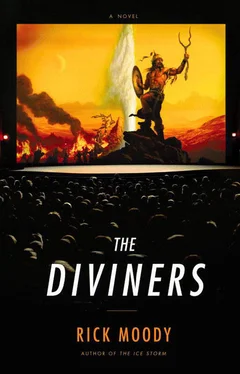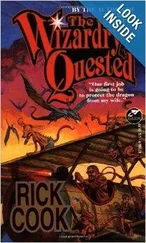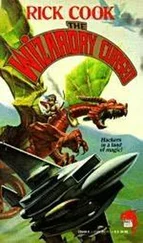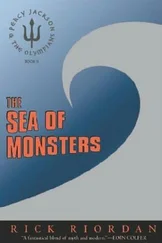A turn on Forty-second! No! The whole of this Western civilization rises up against a turn on Forty-second Street! Once you are on Forty-second Street, you must stay on it, this artery. Yet if this is so, then how do people get on and off of Forty-second Street? They get on at one river and then they go all the way to the other river, passing the Grand Central Station, the New York Public Library, the Disney Store. Bisection, boundary, limit, emblem: Forty-second Street. There must be persons, visiting from other countries, who have been stuck going back and forth on Forty-second Street for tens of decades!
On the phone, Hardeep protests that the description is inadequate. There are many upon many upon many film producers with blond hair, much of it artificial in color. And there are many plump celebrities. It could be that Ranjeet has in his car a certain very plump talk show host. Actually, there are several plump talk show hosts. It seems that being very plump is an indicator of potential for talk show hosts. Here, Ranjeet demurs. It is definitely not the plump talk show host in question, and he knows this for the reason that his son has a violent hatred of the one plump talk show host. Any time the very plump talk show host appears on the television, his son must be restrained. “Well then,” his cousin offers, “if it is not the talk show host, it could be that woman from the situation comedy, the one who had her stomach made smaller.” The conversation goes on this way, and Ranjeet becomes exasperated, says that his cousin is shooting at the fishes, and he looks back in the rearview mirror and sees that the plump woman is now yanking possessions out of her bag in an animated manner. He sees that there is a baseball cap in there, she pulls the baseball cap out of the bag for a moment, and he nearly rear-ends an expensive vehicle, perhaps a Jaguar, by the Flatiron Building, because he is attempting to read the words on this cap that he sees in the backseat, the cap that says A Low Life in High Heels. Hardeep is yelling that he cannot stay on the line all day, but Ranjeet pleads with him, please please, just to punch the words into his computer to see if anything will come out of the computer, A Low Life in High Heels, and Hardeep employs the search engine because everything is available on a search engine, for this is indeed the age of information, and soon there will be search engines right here in the Lincoln Town Cars, or so the dispatcher has said.
In fact, there is a movie with this very title, A good-natured but somewhat pretentious biographical picture about a minor character in Andy Warhol’s Factory, featuring new music by Lou Reed. This is what Hardeep reads to his cousin. And who are the principals of this movie, the director, the writer? For these are things that can be discovered with the search engine, as Hardeep has described it, and soon Hardeep lists these people and adds his own interpretation of the commentary, “A man from Miami prefers to dress in the clothes of a woman, as you would often see on American television. Yes, of course there was a producer involved in the film,” Hardeep says, “and I am looking at a photo of her right now, and she has very large cheeks, like she is carrying nuts in them, and she has blond hair. It looks as though it is not real hair but rather hair that is dyed. Is this enough information?”
Ranjeet replies, “You are the best cousin I could ever have.”
Now they have arrived at Fourteenth Street, where endless construction is also being practiced by extortionists in unions. Passengers have told him so. There is a construction site that has a large rubber rat out in front of it. It has contented features, this rat, and near to it there are men speaking angrily through bullhorns. They stand flush against the enormous, distended belly of the rat. Ranjeet plunges ahead in the Lincoln Town Car, makes it across Broadway, and soon he is at the stop designated by the plump woman, who is again organizing her personal effects. The adventure is coming to a close. She asks the price. He asks the same question of the dispatcher, whose plosives thunder through the two-way radio. Bills are exchanged. Ranjeet can see that this moment is poised to escape and he realizes that he cannot avoid bringing up the issue; he must bring it up, for to do so is to wrest the promise of a lifetime from the jaws of defeat.
“Excuse me, I am sorry to —”
“No time,” the woman says.
“But I —”
She fumbles with her purse; she closes its latch. She lurches across the backseat in order to avoid opening the door on the traffic side.
“I believe that I overheard that you are in the business of cinema. I was once a student of cinema. Before I came —”
“My assistant will be glad to read your script.”
“I have no script,” he says quickly, as she plants one foot on the curb, exactly as in fifty thousand movies past. “I have only advice. About television.”
There are no rules in the self-help universe. Your average addict hates rules. The Second Avenue Clubhouse, on Fourteenth Street between First and Second avenues, therefore observes few rules. Those twelve traditions everyone talks about? The Clubhouse doesn’t observe them. The Clubhouse puts the group ahead of the sick-and-suffering individual, denies addicts entrance if unwashed, passes the basket twice, collects a yearly membership fee. The addicts who run the Clubhouse are unelected. They refuse to step down. They rule completely. For these reasons, new and untested flavors of twelve-step meetings have found favor here. Down the hall there is Self-Mutilators Anonymous, Shoplifters Anonymous, Nightmares Anonymous, a smattering of sex-addict meetings, including the very anonymous Pedophiles Anonymous. Candlelight meditation meetings for Adult Survivors of Incest.
Vanessa Meandro climbs the stairs, out of breath, sweating. Vanessa imagines that she has compassion for all sufferers of obsession, or she says she does; the pedophile walking down the block alone and passing by a blond nine-year-old girl on a bicycle, guys who spend the day fucking other guys in the woods in the Vale of Cashmere. And yet she has no compassion for sufferers of her own particular difficulty. She strides, in her despond, through the entrance and into the Clubhouse, which is a three-bedroom apartment in the kind of postwar building that used to be considered shabby and uncomfortable but that now rents exorbitantly. The carpeting has stripes of grime. Vanessa passes the Clubhouse bulletin board, which advertises triple-winner meetings for alcoholics who are post-traumatic-stress-disordered, self-employed, compulsive gamblers. Where else would they go? Especially if they are also interested in vegan dietetics, clutter clearing, lucid dreaming, rebirthing, and courses in miracles?
The meeting has already started. Vanessa dreads the door that opens into any self-help group. In her instant of hesitation, she believes that people in the meeting sometimes know who she is. There have been articles written about her, articles that have appeared in large glossy magazines. She once wrote a piece herself, too, for an anthology entitled Creative Control, published by a small independent press. Film students read and debated this book. She imagines that the fellow sufferers know who she is, if only because this would make her feel worse. There is nothing to do but cross the threshold into the meeting. There is nothing to do but accept the gazes of her fellow addicts. They’re reading the twelve steps, steps she has entirely ignored. There are a lot of very large people in the meeting, large women, large men. Often there are complaints about the size of the seats. She stumbled into a business meeting once, and rancor about the folding chairs was its sole topic. If the meeting were catering to the needs of this constituency, they should make the chairs larger!
Читать дальше












